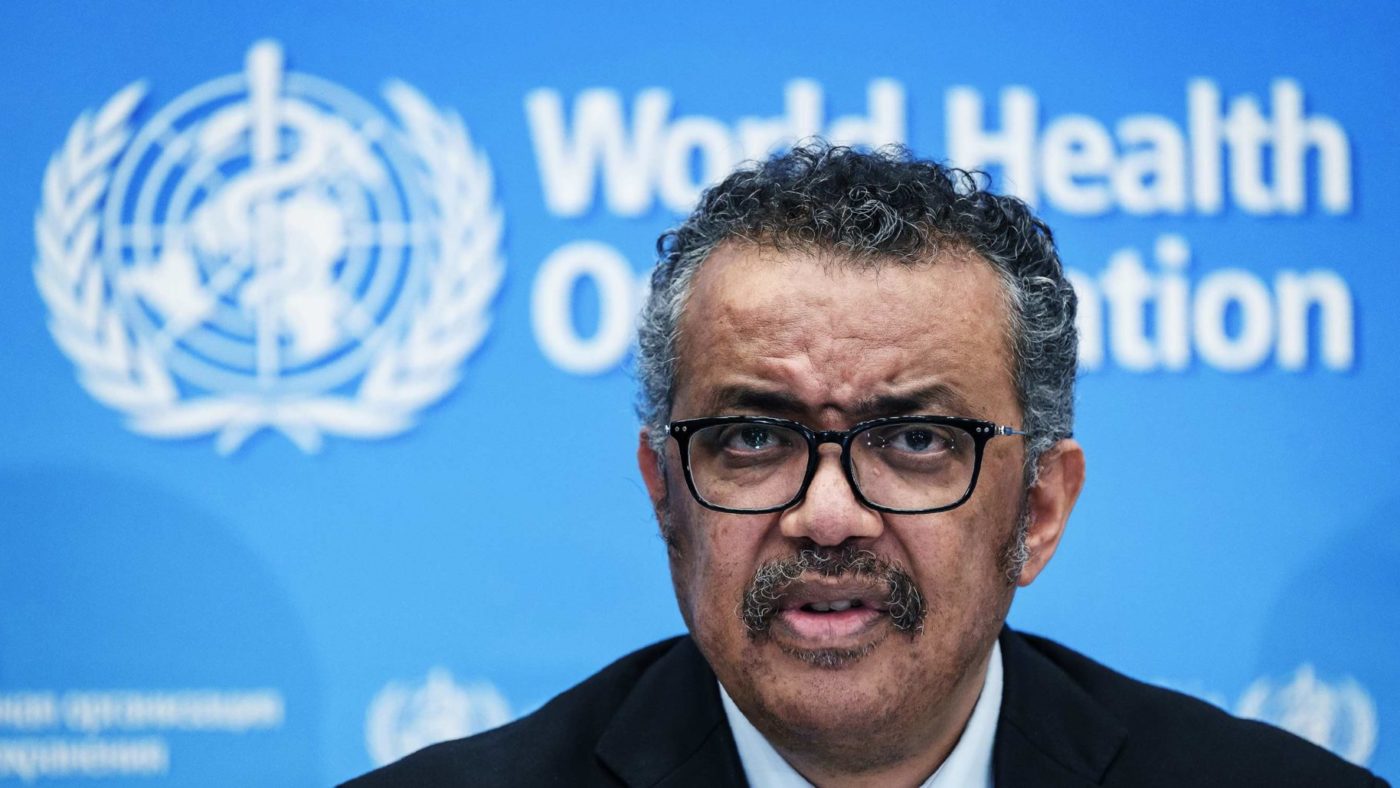When asked by an NBC reporter whether he takes responsibility for the lag in making test kits available, Donald Trump replied: “No. I don’t take responsibility at all.”
As it dawned, excruciatingly slowly, on the US President that America was no more immune to Covid-19 than any other nation, he has aired grievances and assigned blame to all and sundry. China. Wet markets. Health experts.
On Tuesday, the World Health Organisation (WHO) got caught in the crosshairs. First came the tweet, “the WHO really blew it.. funded largely by the United States, yet very China centric”. Then the announcement, during a press conference, of a freeze on “money spent to the WHO”. Later still, the admission that he was only considering a suspension.
The delivery was muddled but the message clear: the WHO had failed dismally to curtail the spread of an infectious disease. At the time of writing, there have been close to 1.5m confirmed cases of Covid-19 and 83,000 deaths. The criticisms levelled against the WHO – whose biennial budget towards combatting “communicable diseases” sits at around $805m per year – are not unfounded.
Health officials detected the first case on 1st December in Wuhan, Hubei. For all its recent missteps, the WHO is blameless for the initiation of the Coronavirus crisis.
It cannot alter Covid-19’s features: the dreadful combination of being both extremely infectious and causing severe symptoms in 10% of those afflicted. And its fatality rate is significant, estimated at between 0.6% and 1.6%.
Nor can we hold the WHO responsible for any untruths it may have been fed over recent weeks, or any suppression of information about the outbreak – although the very fact that the organisation relies on good faith reporting from nation states has proven a fundamental weakness.
But a recent paper from Patrick Basham, founding director of the Democracy Institute, offers an eye-opening account of the WHO’s malfeasance in the spread of the virus.
Although the WHO was warned of the threat in early-January, it didn’t inform the world. A paper from Dr Shengjie Lai, a University of Southampton research fellow, argues that the Chinese government could have prevented 95% of coronavirus infections globally if Beijing had listened to the Wuhan whistleblowers – and made their warnings known.
Statements from Dr Tendros Ghebreyesus, Director General of the WHO, offer useful insight into top level thinking at the organisation. In January: “China has been completely committed to transparency, both internally and externally” and adding “I will praise China again and again, because its actions actually helped in reducing the spread of the novel coronavirus to other countries”.
Later that month, the WHO repeated the Chinese government’s claim that there was no evidence of human-to-human transmission.
In February: “But this [coronavirus] is not influenza. With the right measures, it can be contained. That is one of the key messages from [China]. The evidence we have is that there does not appear to be widespread community transmission.”
In March, Dr Ghebreyesus told a press conference that the “stigma” around coronavirus was “more dangerous than the virus itself” amid growing criticisms at the organisation’s resistance towards calling the Covid-19 crisis a pandemic.
Christopher Snowdon was right to point out yesterday that the WHO has repeatedly dropped the ball on fighting infectious diseases. The organisation’s failure to focus on real health crises has had catastrophic consequences.
Combatting diseases – communicable and noncommunicable – is a central pillar of the WHO. Yet it came under fire from a specialist panel convened by Harvard’s Global Health Institute and the London School of Hygiene and Tropical Medicine in 2015 after failing to sound the alarm until months into West Africa’s Ebola outbreak.
Failure to act in 2014 intensified human suffering and added to the death toll. Major reform was urgently needed to prevent future pandemics.
Nonetheless, contributions continued to roll in. In 2018, the WHO received $125m from the US, $45m from Japan, $37m from China, $30m from Germany, $25m from France and $23m from the UK in assessed contributions. But these are dwarfed by the voluntary contributions – in 2018 the UK gave over $200m, making us the second biggest WHO contributor. It is not inconceivable that governments will follow the US in questioning whether this is money well spent.
How has the WHO allowed history to repeat itself?
Part of the problem is its extremely broad mission statement of “ensuring healthy lives and promoting wellbeing for all at all ages”. That wide remit has meant attention being diverted, exasperatingly, towards sugary drinks, vaping and drinking. An unhealthy obsession with obesity and tobacco has led to descriptions of these conditions as “epidemics,” even though, as Mark Tovey wrote recently, this is a term the Oxford Dictionary defines as a “widespread occurrence of an infectious disease in a community at a particular time”. And now, a preoccupation with the health of the Chinese Communist Party has distracted from the wellbeing of millions.
As scientists become household names and bloated transnational bodies are thrust into the spotlight, questions will be raised about their response to the crisis. Andrew Marr asked Neil Ferguson how, “on a human level,” he copes with looking in the mirror every morning and wondering whether he’s “got it right”. (The response was innocuous: “There’s an enormous sense of responsibility.”)
For the WHO the question is less nuanced: reform, or be abolished.
Click here to subscribe to our daily briefing – the best pieces from CapX and across the web.
CapX depends on the generosity of its readers. If you value what we do, please consider making a donation.


